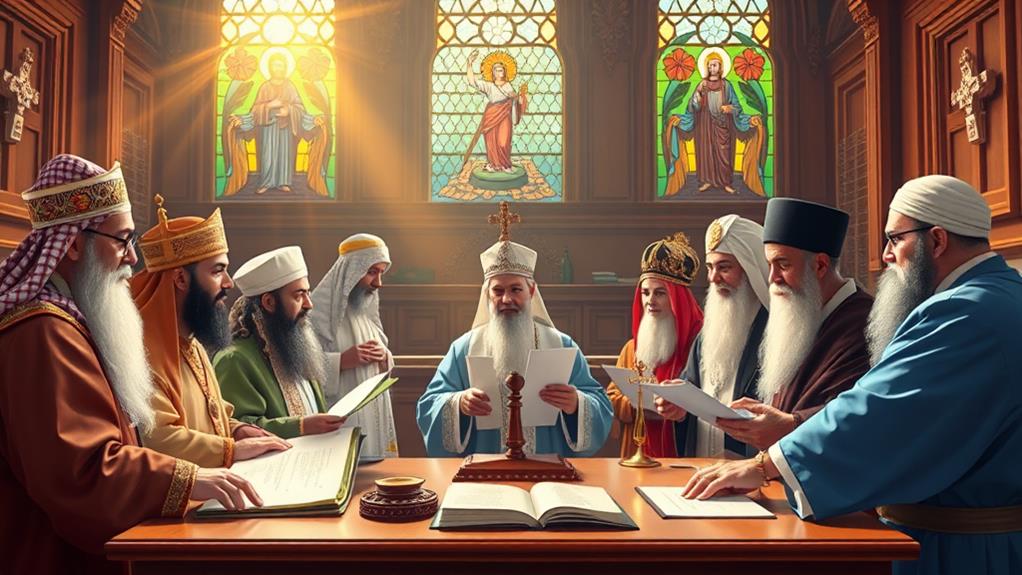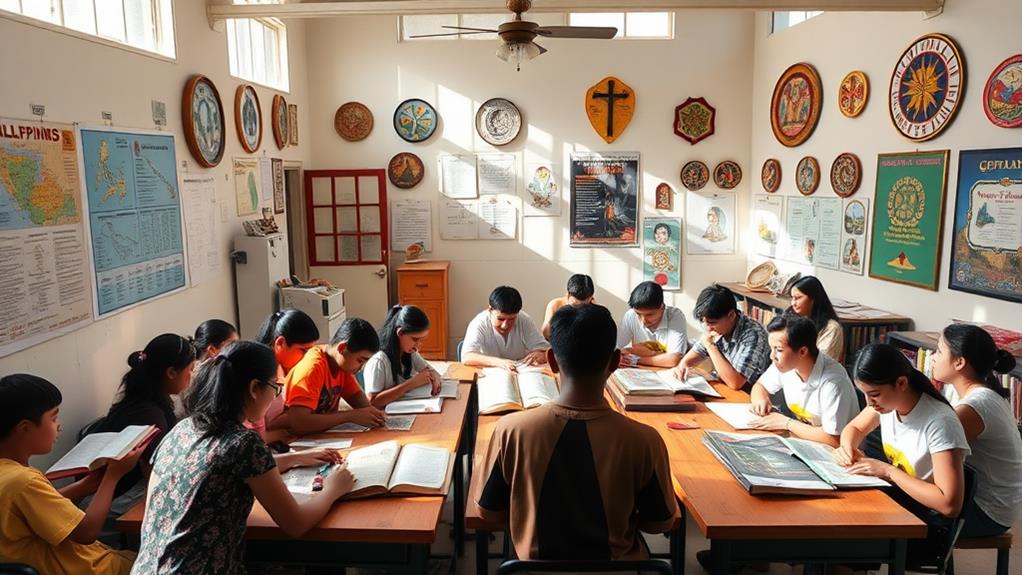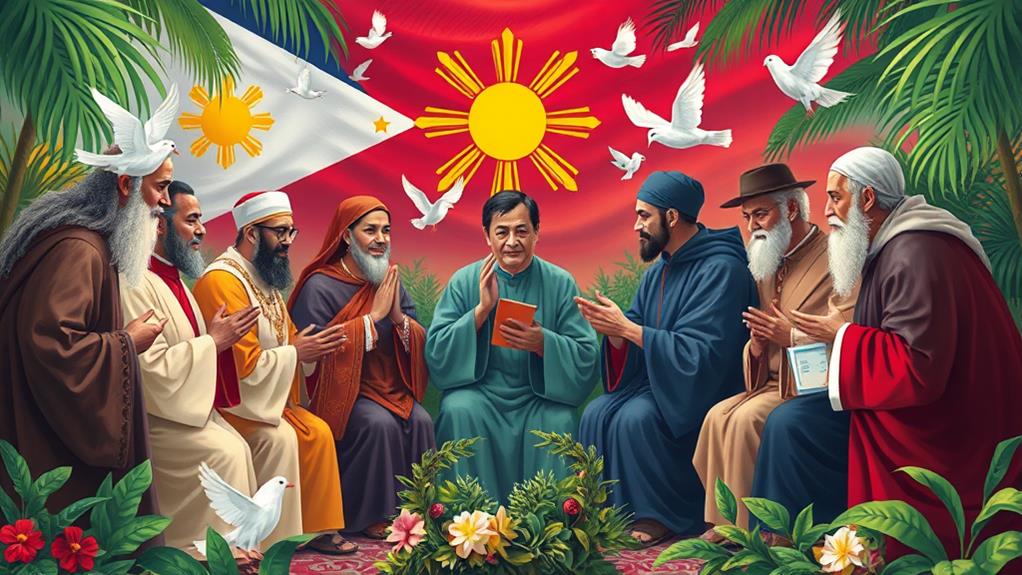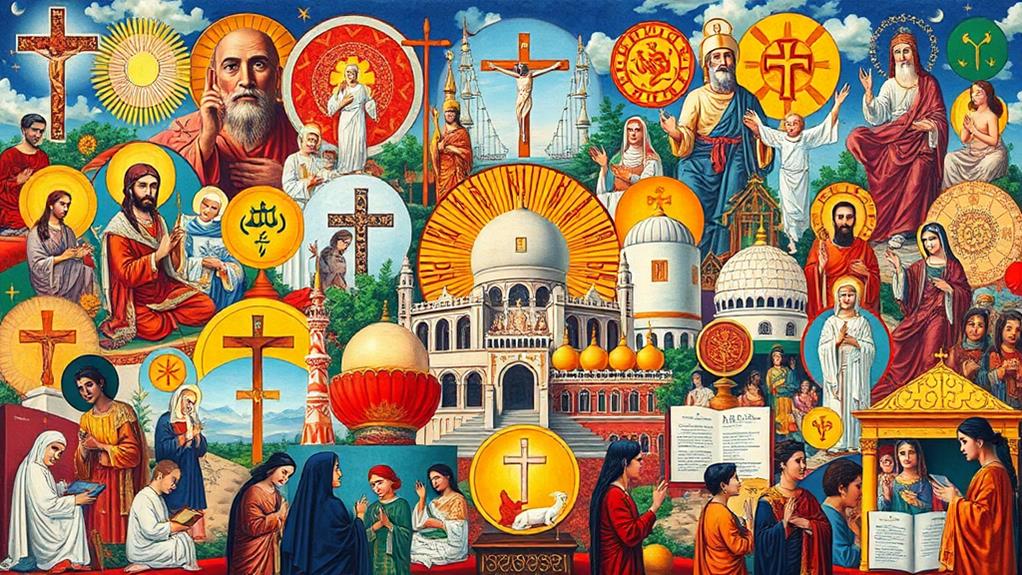Religious Freedom in the Philippines
The Philippine Constitution guarantees religious freedom, allowing diverse beliefs to coexist. Around 83% of Filipinos consider religion essential. As a result, the majority of the population, approximately 86%, identifies as Roman Catholic.
Challenges to Religious Tolerance
Despite the guarantee of religious freedom, significant challenges remain for marginalized groups, particularly Muslims. They face social stigma and discrimination, which can lead to exclusion and marginalization.
For instance, Muslims in the Philippines often experience bias in media portrayals, which can perpetuate negative stereotypes.
Government Efforts to Promote Tolerance
The government has initiated interfaith dialogue and collaborative initiatives to foster tolerance and understanding among different religious groups. These efforts aim to address the challenges faced by marginalized groups and promote a more inclusive society.
Understanding the Complexities of Religious Tolerance
To grasp the complexities of religious tolerance in the Philippines, it is crucial to understand the dynamics of religious freedom and the ongoing efforts to address the challenges.
By recognizing the biases and discrimination faced by marginalized groups, we can work towards creating a more tolerant and inclusive society.
Legal Framework for Religious Freedom

The Philippine Constitution guarantees religious freedom by explicitly protecting the free exercise of religion and prohibiting any state-sponsored religion. This means that citizens can practice their beliefs without fear of governmental interference.
Public officials are legally barred from disrupting religious worship or offending religious sentiments, ensuring the protection of religious practices.
Organized religious groups seeking tax-exempt status must register with the Securities and Exchange Commission (SEC) and Bureau of Internal Revenue (BIR). They must submit their articles of faith, bylaws, and annual financial statements, promoting transparency while allowing these groups to operate without undue financial burden.
Religious instruction is permitted in public schools under certain conditions. It must be voluntary, incur no cost to the government, and require parental consent. This acknowledges the role of families in guiding their children's spiritual education.
Attacks on religious facilities are classified as war crimes under humanitarian law, emphasizing the serious legal consequences for violations against religious properties.
This comprehensive legal framework ensures a society where religious freedom is a protected aspect of life.
Demographics of Faith in the Philippines
The Philippines has a diverse population of approximately 116.4 million people, with a rich tapestry of religious beliefs.
The majority, around 79.5%, identify as Roman Catholic, reflecting the country's colonial history and cultural influences. Other Christian groups make up about 9% of the population, indicating a diverse Christian landscape.
The Muslim population is estimated to range between 6% to 11%, predominantly concentrated in Mindanao, where the majority adhere to Sunni Islam, with a small Shia minority in certain provinces.
Indigenous groups in Mindanao, numbering around 10.9 million, primarily follow Christianity, yet they also include some Muslim individuals, highlighting the complex interplay of faiths in the region.
Despite this diversity, the representation of Muslims in government remains limited, with only 11 Muslims serving in the House of Representatives and one in the Senate. This disparity illustrates the challenges faced by the Muslim community in achieving political representation and voice within the broader Filipino society.
Understanding these demographics is crucial for fostering religious freedom and tolerance, as they inform the societal dynamics and potential conflicts that may arise from differing beliefs.
Religious Education Policies

The Philippine government permits religious instruction in public schools under certain conditions. Specifically, this instruction mustn't incur any cost to the state and requires parental consent. This framework allows for the integration of various religious teachings, particularly benefiting the Muslim community.
Private madrassahs are increasingly registering with the Department of Education (DepEd). In the 2022-23 school year, 12 private madrassahs registered, indicating a growing interest in Islamic education. The government allocated 359.5 million pesos ($6.4 million) for madrassah education in 2022, supporting these institutions alongside public schooling.
The ALIVE program plays a crucial role in incorporating Islamic teachings within the education system. It serves 173,641 Muslim students across 2,644 public elementary schools. This program effectively integrates Islamic teachings into the education system.
The government actively promotes the registration of private madrassahs with the National Commission on Muslim Filipinos (NCMF) or DepEd. This initiative ensures that these institutions adhere to the Standard Madrassah Curriculum, thereby enhancing the quality and accessibility of Islamic education.
Societal Attitudes Towards Religion
In the Philippines, 83% of Filipinos consider religion very important, highlighting its significant impact on daily life. However, discrimination against Muslims remains a pressing issue, with derogatory social media remarks and incidents of red tagging contributing to societal stigma.
The media plays a crucial role in shaping these attitudes. For example, the FPJ network's discriminatory portrayal of Muslims led to an apology, emphasizing the need for responsible media representation. Ongoing discussions focus on promoting religious freedom and addressing the rights of minority faiths, often marginalized in public discourse.
Discrimination against Muslims results in stigmatization and perpetuates negative stereotypes. Promoting interfaith dialogue is essential to address this issue. Responsible journalism can also help combat misrepresentation of beliefs by providing accurate and balanced reporting.
The Adventist Church's Saturday observance often leads to difficulties due to limited societal acceptance. Raising awareness about religious diversity can help foster greater understanding and acceptance.
Cultural values significantly influence public perceptions of religion. Education on tolerance and acceptance is necessary to combat discrimination and promote religious freedom. Advocating for the rights of all faiths is critical, and strengthening legal protections can help ensure equal treatment for all religions.
| Key Issues | Societal Impact | Suggested Solutions |
|---|---|---|
| Discrimination | Stigmatization of Muslims | Promote interfaith dialogue |
| Media portrayal | Misrepresentation of beliefs | Encourage responsible journalism |
| Adventist Church | Limited societal acceptance | Raise awareness of diversity |
| Cultural influence | Shaping public perceptions | Education on tolerance |
| Human rights | Advocacy for all faiths | Strengthen legal protections |
Government Engagement and Advocacy

Government Engagement and Advocacy
Collaboration with International Bodies and Local Communities
The Philippine government actively engages with international human rights bodies and local religious communities to enhance religious freedom.
The government collaborates with organizations like the Commission on Human Rights to tackle issues affecting religious minorities. This partnership enables the government to address concerns and promote inclusive governance.
Promoting Interfaith Dialogue and Tolerance
In the Bangsamoro Autonomous Region of Muslim Mindanao (BARMM), local governments invest in facilities that foster interfaith dialogue and promote religious tolerance. This initiative reflects the government's commitment to inclusive governance and religious freedom.
Advocating for Muslim Rights
The National Commission on Muslim Filipinos (NCMF) advocates for Muslim rights, addresses societal discrimination, and secures the right to wear religious attire in official identification. High-level discussions with the Catholic Bishops' Conference aim to address challenges to religious freedom while enhancing cooperation among different faiths.
Pioneering Agreements at the United Nations
The Philippine government has pioneered agreements promoting religious tolerance at the United Nations, underscoring its dedication to human rights and interreligious dialogue.
Challenges to Religious Tolerance
The Philippines faces significant challenges to religious tolerance, particularly for marginalized communities.
Discrimination against Muslims is a pressing issue, with anti-Muslim sentiments expressed through derogatory comments on social media. This societal discrimination often manifests in the difficulties Muslims encounter in government and public spaces, hindering their access to religious freedom. For instance, Muslims face challenges in accessing basic services, such as education and healthcare, due to their religious beliefs.
The Adventist Church also grapples with intolerance due to its Saturday Sabbath observance. Its leaders face red tagging, which many perceive as politically motivated. Such challenges undermine the church's ability to practice its beliefs freely. For example, Adventist Church members have reported being denied employment or business opportunities due to their religious beliefs.
Violent extremism linked to groups like Dawlah Islamiyah further complicates public perceptions of Islam. The bombing at Mindanao State University is a prime example of how such extremism heightens fear around religious minorities. This, in turn, exacerbates the discrimination and intolerance faced by Muslim communities.
The lack of formal reports on abuses against religious freedom compounds these issues. This lack of documentation creates an environment where marginalized groups struggle to assert their rights.
Continuous advocacy efforts are essential to address the systemic nature of intolerance and discrimination faced by various religious communities. Recognizing these challenges is vital for fostering a more inclusive and tolerant society in the Philippines.
How Does Religious Tolerance in the Philippines Extend to Islamic Festivals and Celebrations?
The Philippines is known for its religious tolerance, where various faiths coexist peacefully. This extends to islamic festivals in philippines, where Muslim communities are able to celebrate their traditions and customs with respect and support from the larger population. The country embraces diversity and promotes harmony among different religious beliefs.
Media Representation of Religions

Media Representation of Religions in the Philippines
The way religions are portrayed in the media in the Philippines has a significant impact on societal attitudes and can perpetuate harmful stereotypes.
The portrayal of Muslims often reflects persistent societal biases, leading to discrimination and violence. Social media platforms serve as breeding grounds for derogatory comments, further entrenching negative perceptions.
Religious Groups and Their Media Portrayal
The media portrayal of various religious groups in the Philippines is often inaccurate and biased.
Muslims are often depicted negatively and linked to violence. The Adventist Church faces red tagging, which challenges their religious freedom due to their Sabbath observance. On the other hand, the Catholic Bishops' Conference advocates against red tagging and discrimination.
The Influence of Media Portrayal on Societal Attitudes
The media's influence on societal attitudes is evident in the public apology issued by the FPJ network for its Batang Quiapo series.
Reports indicate that Adventist Church leaders experience red tagging, which is seen as politically motivated and harmful to their religious freedom. The Catholic Bishops' Conference raises alarms over the dangers of red tagging, emphasizing its impact on public discourse and human rights advocacy.
The Impact of Media Portrayal on Religious Freedom and Tolerance
The intersection of media portrayal and societal biases continues to challenge religious freedom and tolerance in the Philippines.
Incidents like the bombing at Mindanao State University, attributed to extremist groups, exacerbate misrepresentation in the media. As a result, it's essential to address the inaccurate and biased portrayal of religious groups in the media to promote religious freedom and tolerance.
U.S. Involvement in Religious Freedom
The U.S. actively addresses religious freedom issues in the Philippines, particularly in regions with diverse religious landscapes.
In the Bangsamoro Autonomous Region of Muslim Mindanao (BARMM), the U.S. engages with the Philippine government to promote minority rights and interfaith dialogue. This is achieved through discussions with local religious groups and the Commission on Human Rights, which is crucial in monitoring and advancing religious freedoms in the Philippines.
To enhance religious tolerance, the U.S. encourages local governments to invest in community learning facilities that support inclusive education.
By doing so, the U.S. aims to create an environment where diverse beliefs coexist, strengthening civil liberties and ensuring that all religious communities feel protected and represented. For instance, in BARMM, the U.S. supports initiatives that bring together students from different religious backgrounds to promote mutual understanding and respect.
Continuous monitoring of relevant legislation by U.S. officials plays a vital role in safeguarding religious rights.
The U.S. embassy also utilizes online platforms to advocate for civil liberties and raise awareness about the importance of religious freedom. For example, the embassy's social media campaigns highlight the necessity of tolerance and reinforce the commitment to uphold the rights of all individuals, regardless of their religious affiliations.
Ultimately, these efforts contribute to a more harmonious society in the Philippines.
Questions and Answers
What Is the Religious Situation in the Philippines?
The Philippines is a culturally diverse country with a rich religious landscape. This diversity is reflected in its varied religious demographics, with over 86% of the population identifying as Catholic, 6% as Protestant, and 4% as Muslim, among other faiths.
Interfaith dialogue plays a crucial role in community engagement. For instance, the Philippines' National Ulama Conference of the Philippines (NUCP) brings together Muslim leaders to promote understanding and dialogue between Muslims and Christians. This dialogue fosters a deeper understanding among different spiritual practices, promoting peaceful coexistence.
Historical context influences current attitudes towards religion. The country's history of Spanish colonization and American occupation has shaped the nation's religious identity, with Catholicism being introduced by Spanish colonizers and Protestantism by American missionaries.
Secularism trends affect freedom of worship. While the Philippine Constitution ensures the separation of church and state, there are ongoing debates about the role of religion in government and education.
Legislative impacts shape missionary activities. Regulations, such as the requirement for missionary groups to register with the government, ensure that missionary activities align with citizens' rights and don't infringe on their freedom of worship.
Despite challenges, the religious landscape remains vibrant. The Philippines' commitment to maintaining harmony among its diverse religious communities is reflected in its continued efforts to promote interfaith dialogue and understanding.
What Are the Problems Encountered by Religion Now in the Philippines?
Discrimination persists in the Philippines, affecting community relations. This is evident in various forms, such as religious beliefs influencing hiring decisions and access to education. For instance, some employers prefer to hire individuals from their own religion, while some schools offer preferential treatment to students of a specific faith.
Interfaith dialogue is often overshadowed by religious extremism. This is a major obstacle to promoting cultural diversity. In the Philippines, some religious groups have been known to promote violent ideologies, leading to conflicts with other faiths. For example, the Abu Sayyaf group has been responsible for numerous terrorist attacks, causing harm to people of different religious backgrounds.
Secularism challenges arise in government policies. These policies often favor certain beliefs over others. Historically, the Philippine government has been influenced by the Catholic Church, leading to policies that benefit Catholics more than other religious groups. For instance, the Reproductive Health Law was met with resistance from the Catholic Church, leading to its delayed implementation.
Historical context plays a significant role in shaping these dynamics. The Philippines was colonized by Spain, which introduced Catholicism to the country. This has led to a significant Catholic population, influencing the country's laws and policies.
Youth engagement is crucial for advocacy efforts. It helps bridge divides and promote understanding among different faiths. By engaging with young people from various religious backgrounds, advocacy groups can foster a more inclusive society for everyone involved.
For example, interfaith youth camps have been successful in promoting dialogue and understanding among young people of different faiths.
What Are the Religious Beliefs in the Philippines?
The Philippines is a predominantly Catholic country, with approximately 86% of the population identifying as Catholic. This is reflected in the country's culture, with many festivals and traditions centered around Catholic holidays and practices.
However, indigenous practices and folk traditions still exist among various communities. For example, the Ifugao people of the Cordillera Mountains continue to practice their traditional animist beliefs, while the T'boli people of Mindanao maintain their ancient rituals and customs.
A Muslim minority, primarily Sunni, also contributes to the country's spiritual diversity. They make up around 6% of the population and are mostly found in the southern regions of Mindanao and the Sulu Archipelago.
In recent years, a growing Protestant movement has emerged, with many Filipinos converting to Evangelical Christianity. This shift is largely attributed to the influence of global Christian missionary efforts.
Despite these religious differences, the Philippines celebrates many religious festivals, fostering interfaith dialogue and understanding. Examples include the Sinulog Festival in Cebu, which honors the Santo Niño, and the Feast of the Black Nazarene in Manila, which attracts millions of Catholic devotees.
In addition, secular movements have begun to emerge, influenced by global trends and reflecting the dynamic interplay of tradition and modernity within the nation's religious landscape. As the country continues to evolve, its religious beliefs and practices will likely continue to adapt and change.
What Are the Religious Conflicts in the Philippines?
The Philippines' religious conflicts stem from historical tensions and the presence of extremist groups. The country's cultural diversity, with over 80 ethnic groups and 180 languages, enriches the nation but also complicates community relations.
For instance, the Moro National Liberation Front (MNLF) and the Moro Islamic Liberation Front (MILF) have been involved in separatist movements in Mindanao, leading to conflicts with the government.
To address these issues, the government has implemented policies and peace initiatives. For example, the 2014 Comprehensive Agreement on the Bangsamoro (CAB) aimed to establish a more autonomous region in Mindanao.
However, challenges remain, including the presence of extremist groups like Abu Sayyaf and the Bangsamoro Islamic Freedom Fighters (BIFF).
Migration also impacts these dynamics, as it can lead to the displacement of communities and create social unrest. To foster understanding and address grievances, educational programs can play a crucial role.
For instance, the Philippine Department of Education has implemented programs promoting interfaith dialogue and understanding.
Engaging in interfaith dialogue is crucial for building a more harmonious society amidst these conflicts. This can be achieved through initiatives like the Philippine Council of Evangelical Churches' (PCEC) interfaith dialogue program, which brings together religious leaders to discuss ways to promote peace and understanding.